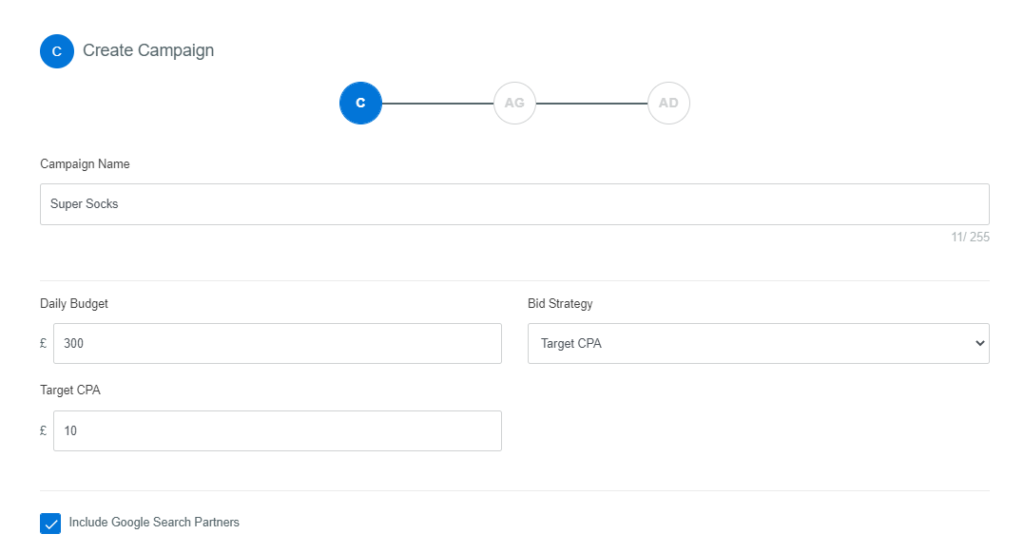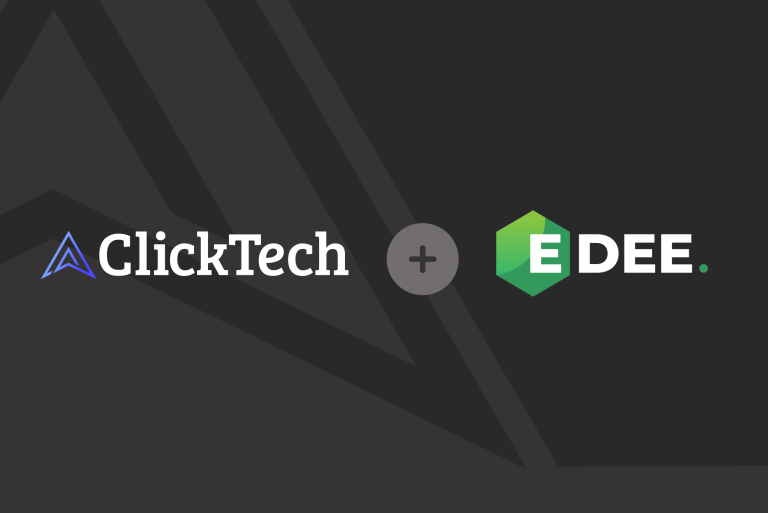Heading into your Google, Microsoft or Adzooma account can sometimes be a daunting sight when all you see is a whole host of numbers and metrics staring back at you.
But not every PPC metric is important for what you want to achieve and it isn’t as daunting as you may think.
So much of it comes down to intent. For example, you may hear people in the PPC community say, “Impressions don’t matter one jot!” But that’s not the case at all. If you’re running a brand campaign for example, one of the most important metrics you should be looking at is impressions.
So in this article, I’m going to lay out all the PPC metrics you should be keeping an eye on (as you may have guessed from the title), but I’m also going to lay out for what reason you should be keeping an eye on them.
That way, when you next head into your PPC campaigns and you’re looking at the performance of your brand campaigns for example, you can start to prioritise some metrics more than others.
Intent Is Key
Aligning your campaigns with intent is crucial to PPC success. Before you start any campaign you need to ask yourself the question, “What do I want out of this?”
This can be just something as simple as:
- more customers (sales campaign)
- more eyes on my brand (brand campaign)
- more users on my website (traffic campaign)
- more sign ups for my free webinar (lead campaign)
Those are the campaigns we’re going to concentrate on today. You could go more granular if you wanted, but for the vast majority of PPC users, your campaigns will fit into one of the four buckets above.
Therefore, once you’ve made your decision regarding which campaign you want to proceed with, you then need to ask the question, “What metrics do I need to keep an eye on to measure this campaign’s success?”
That’s what this article is for. Here I’m going to go through each metric you’d see in your Adzooma, Microsoft or Google ads account, then tell you which type of campaign this metric is most useful for.
Cost – Everything
Let’s start with a super easy one, cost: how much your campaign has spent.
Unless you’re Elon Musk or Jeff Bezos, you’re probably going to want to keep an eye on this one so you’re not bankrupting yourself.
Verdict: Keep an eye on it unless you’re a billionaire
Want to save more money on your campaigns? Have a read of our article on 4 simple ways to save money on your PPC campaigns right now
Clicks – Everything
Clicks aren’t the be all and end all, but they’re an important measurement stick for every kind of campaign you’re running.
Every sale and every lead has to start with a click first.
If you want your brand out there, aren’t crucial, but someone just noticing your brand’s name in the Search Engine Results Pages (SERPs) isn’t likely to do that much – even if you’re running a brand campaign you still want someone to click your ads.
Verdict: Always be measuring those clicks no matter what campaign you’re running
Click-Through Rate (CTR) – Everything
Click through rate is the percentage of people who see your ad and click it. So if 100 people see your ad, but only 5 people click it, your CTR will be 5%.
Typically, if you’re connected to the Adzooma platform you’ll see a CTR of 6% on Google Ads and 3.7% on Microsoft, which is about 4% and 1% higher than industry average.
You always want to keep an eye on this one, for every kind of campaign you run. If that CTR is dropping to below 2% then you probably need to take action and revise your ad copy or ad relevancy to try and get people clicking on your ads.
This isn’t a cut and dry rule, though. You could have thousands of clicks and hundreds of conversions while your CTR might be at 1%. Then you’d say to me, “Tom, stop telling me I need my CTR above 2% because I’m here raking in the dollar.”
Your own judgement is key afterall. PPC isn’t always a science, sometimes it’s an art.
Verdict: You don’t always have to be concerned if it drops too low, but it’s something to always keep an eye on
Adzooma users see an uptick in CTR rates due to the easy to implement Opportunities that are a part of the free platform. Learn More
Cost Per Click (CPC) – Everything
Staying on the theme of clicks, staying on the theme of metrics you need to measure for every kind of campaign, we approach the subject of CPC.
Now, whereas the two above you don’t always have to be concerned about, this one you very much do. Because if you’re paying way over the top for your clicks, then something is very wrong, and it’s going to hit you in the place that hurts most – your pocket.
How much you pay for clicks depends on what industry you’re in, but whatever they are, you need to keep an eye on them. Not doing so could destroy your campaigns.
Verdict: Always measure this. No ifs or buts.
Quality Score – Everything
Quality Score is another really important metric because if your Quality Score is low, then you’re going to pay more for your ads no matter what campaign you’re running.
Quality Score is a little bit tougher to understand than the other KPIs because it’s a little bit vaguer – it’s made up of different measurements like ad relevance, landing page experience, ad format, expected CTR etc.
It also has a scoring system out of 10. Anything 5 and below isn’t particularly great and therefore your ads should be revised (unless you’re running competitor campaigns, for example).
You can read our Quality Score explainer article to get more information on what it is, why it’s so important, and how you can improve it.
Verdict: Very important for all campaigns to save on unnecessary wasted spend
Conversions – Sales / Leads
You can discount this if you’re running brand or traffic campaigns, but for those running sales or lead campaigns, then stick around.
Conversions are simply what you define as a user completing an action which becomes a lead or a sale – that could be:
- Signing up to your email newsletter
- Enquiring about your services
- Making a purchase.
- And so on
As you can imagine, this is something you will want to keep an eye on – especially if you have a target of getting 1,000 people signed up for your newsletter or something.
However, make sure you don’t measure this in isolation. You don’t want to look solely at conversion without cost too (spoiler: that’s what the next one’s about).
Verdict: Important for sales and lead campaigns, but make sure you don’t measure it in isolation
Cost Per Acquisition (CPA) – Sales / Leads
Here comes the context.
CPA is how much you pay per lead or customer (dependent on what you class as a conversion in Google Ads), so say 15 people click your ad for a total cost over £75 and you get two conversions, the CPA will be £37.50.
You can see why this would be important. If your CPA is at £37.50 , but you’re only making a £20 sale, it’s likely you need to change your strategy up.
When you set up your campaigns in Adzooma, you will be able to set a Target CPA. Using historical information and contextual signals, Adzooma automatically set your bids to try to get your conversions to remain at that Target CPA.
This can’t be something you do straight away, though – you need to have had at least 30 conversions in the last 30 days for the algorithm to work.
Verdict: Super important metric to watch if you’re running sales or lead campaigns

Conversion Rate (CVR) – Sales / Leads
Another one that applies to the sales and lead campaigns, CVR is the percentage of people who convert from a click. So say you have 1 conversion and 10 clicks, your CVR will be 10%.
This metric is important to see how well you’re performing after the click, when a user is on your site and looking to make an action. If this metric is super low, maybe the audience you’re attracting isn’t right, maybe your site is too slow, maybe your landing page isn’t the best.
Those are things you’ll have to dig into yourself, but CVR is a good indicator that either something’s going wrong after the click or something is going pretty darn well.
Verdict: A good indicating metric for sales and lead campaigns to help figure out your success after the click
Impressions – Brand
Now, a lot of people would say impressions don’t matter at all, but that really isn’t true.
If you’re wanting eyes on your brand, then impressions do matter. For example, imagine if you’re a small cola brand and you’re beside Coca Cola and Pepsi with a quirky ad – that’s automatically going to get people thinking about you. Even if they don’t click on you, being in their mind is good enough.
That’s why impressions are important. Not for every campaign, sure. But don’t rule them out entirely.
Verdict: Important metric for brand campaigns. Not for anything else
Impression Share (CPM) – Everything
Now impression share is a little bit different to impressions. It’s actually the total impressions divided by the total eligible impressions.
Total eligible impressions take into account things like bid budget, targeting settings, quality score and approval statuses.
So if you’re really wanting to get those eyes on your brand, this is a really important metric for you, as if that CPM is low, then you may want to do something about that.
However, this also impacts sales and lead campaigns too, because again if your CPM is low, you could be losing out on clicks to your competitors because more often than not, your ads aren’t being seen.
Plus, on top of CPM, there is also Absolute Top Impression Share and Search Top Impression Share, which gives you a percentage run down of the location of your ads in the SERPs.
This percentage indicates whether your ads have the possibility of reaching the top or absolute top. This how they’re worked out:
- Search top impression rate = Impressions on top/Impressions
- Search absolute top impression rate = Impressions on the absolute top/Impressions
Verdict: Important for all campaigns.
An Easier Way?
If you’re thinking, “That is a lot to remember, isn’t there an easier way?”
Well, the answer to that is yes!
With the free Adzooma platform, the software can keep an eye on all these metrics for you and then notify you whenever they turn bad or there’s opportunity for something more.
If you’re starting out in PPC, then it’s the perfect sidekick to help you along in your learning journey.
Then when you’ve navigated your way to an added level of competency, it’ll be your trusty assistant who’ll be there to handle all the manual work so you don’t have to.
All you have to do is connect your Google, Microsoft or Facebook account to the Adzooma platform, then you’ll have access to one-click optimisations, a full reporting suite, extensive automation, and so much more, at no cost at all.




